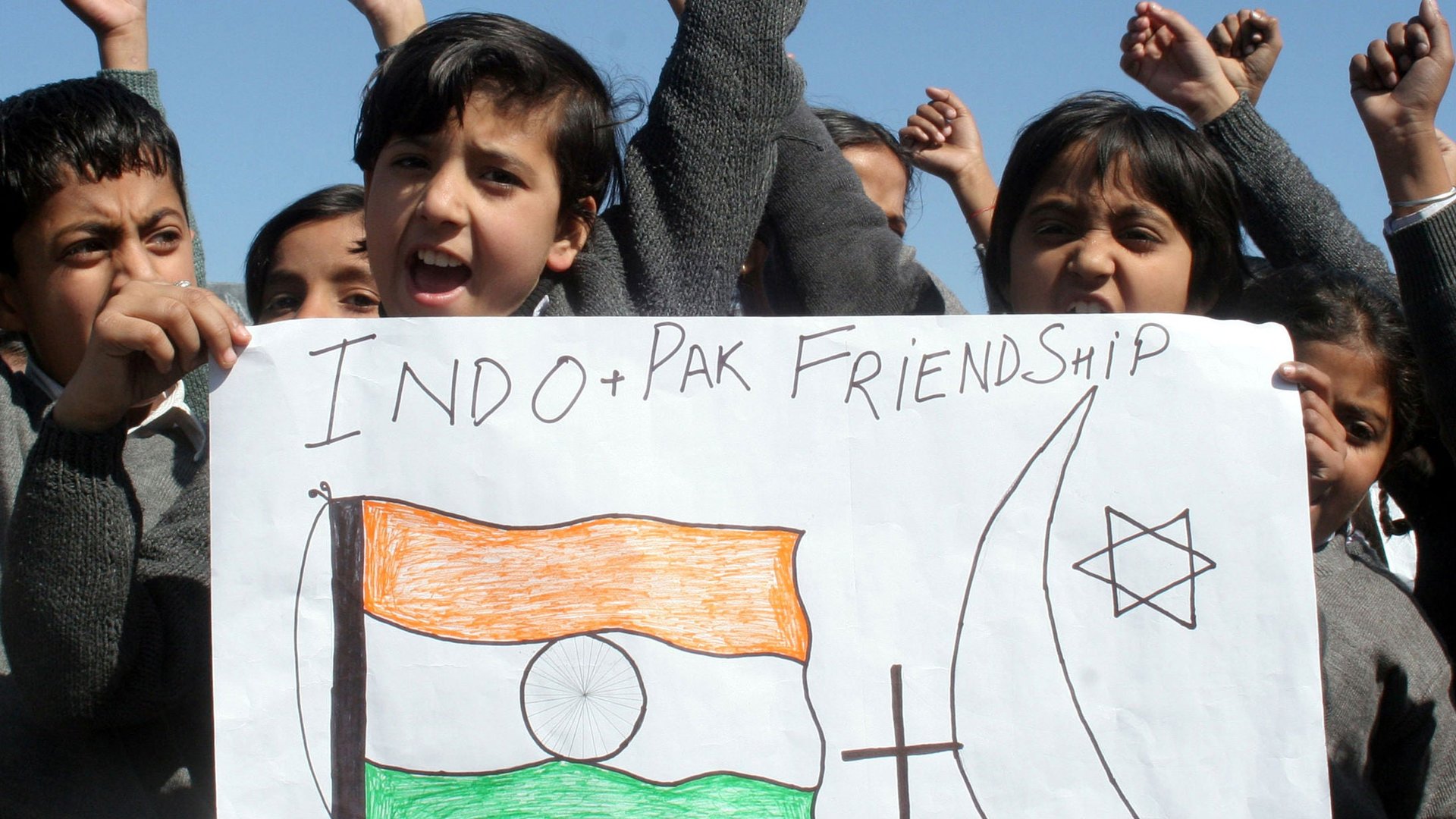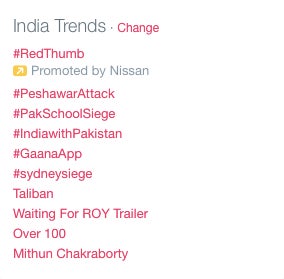#IndiawithPakistan shows that solidarity trumps political disputes
Horrific is an understatement to describe the day in Peshawar, Pakistan, where Taliban terrorists took over a military school, killing at least 141 people, most of whom were school children (the latest death toll is of 132 children, 9 teaching staff and 7 terrorist).


Horrific is an understatement to describe the day in Peshawar, Pakistan, where Taliban terrorists took over a military school, killing at least 141 people, most of whom were school children (the latest death toll is of 132 children, 9 teaching staff and 7 terrorist).

On the other side of the border, Indians are expressing their solidarity on Twitter, using the hashtag #IndiawithPakistan—which is now trending in India, as are the others related to the attack (#PeshawarAttack, #PakSchoolSiege).
Dec. 16 is remembered as a tragic date in India as well, as it’s the anniversary of the 2012 brutal gang rape and killing of a young woman, referred to as Nirbhaya, “fearless.” But Dec. 16 also marks the anniversary of the end of the Indo-Pak war of 1971.
This makes the Indian expressions of solidarity even more meaningful.
While India and Pakistan politics are antagonistic, the same can’t necessarily be said of the citizens of the two countries: separated by the tragic partition of 1948, Indians and Pakistani share a deep connection, having been—until less than 70 years ago—the same people, and the public expressions are a heartwarming reminder of a human solidarity that goes beyond geopolitical tensions.
Only a few days ago, the two countries came together during the Nobel Peace Prize ceremony when Pakistani and Indian children rights activists, Malala Yousafzai and Kailash Satyarthi, were awarded prizes.
The trending of #IndiawithPakistan follows of only a few hours the trending hashtag, #Illridewithyou, used to express solidarity to Muslim citizens during the Sidney siege. Twitter hashtags are perhaps the preferred tool to express solidarity and publicly take a stand in controversial issues: #JewsAndArabsRefuseToBeEnemies or #CrimingWhileWhite are other powerful examples.